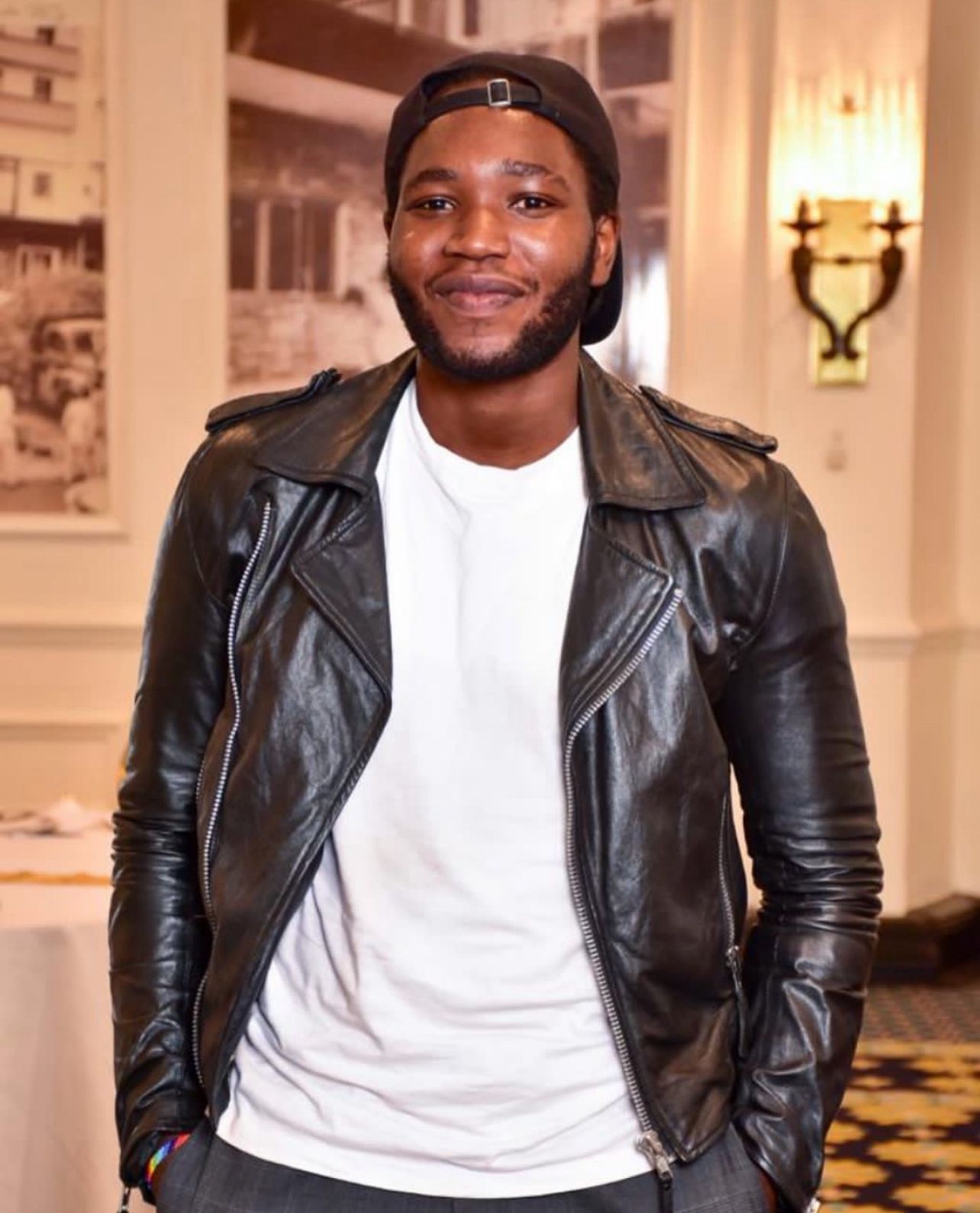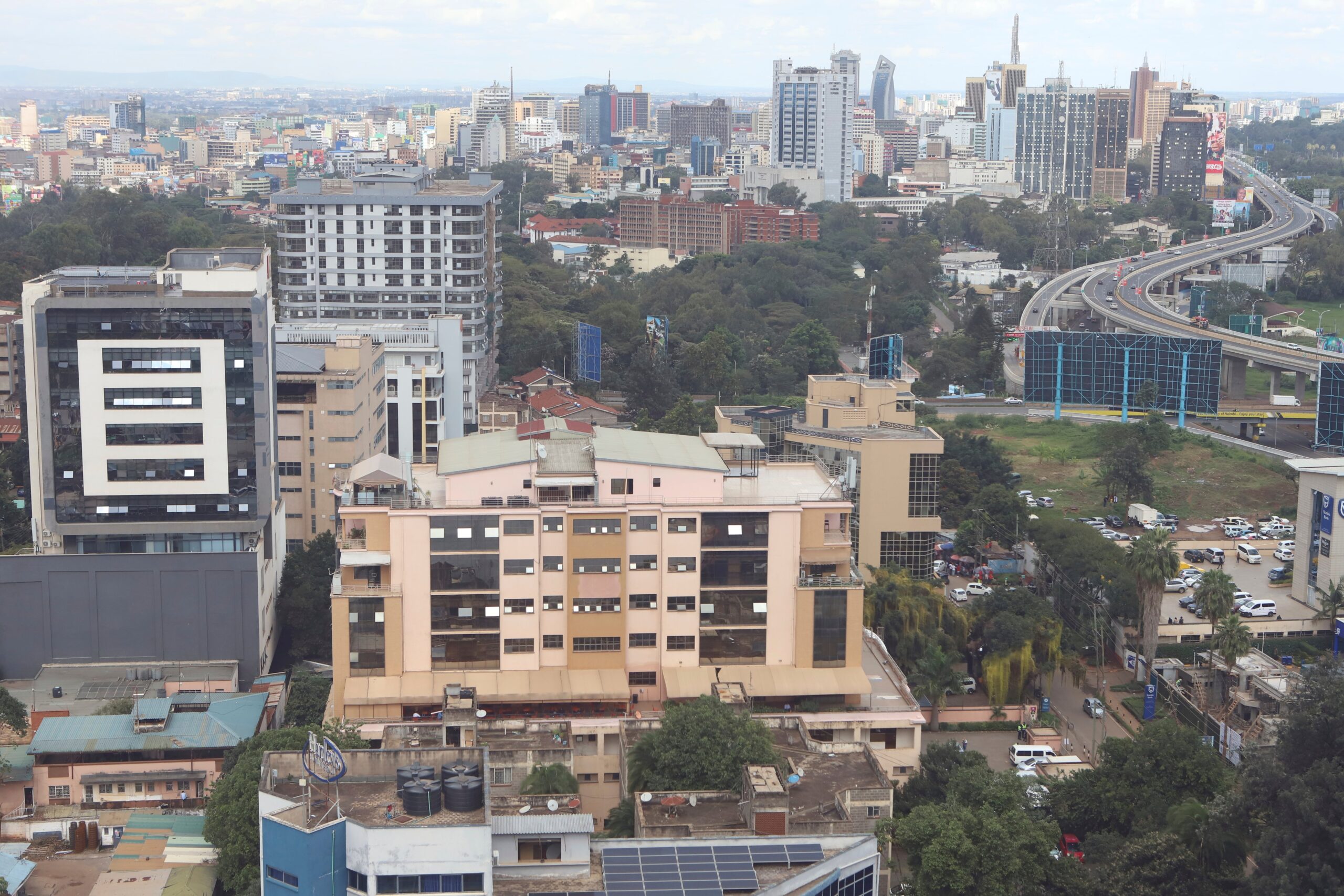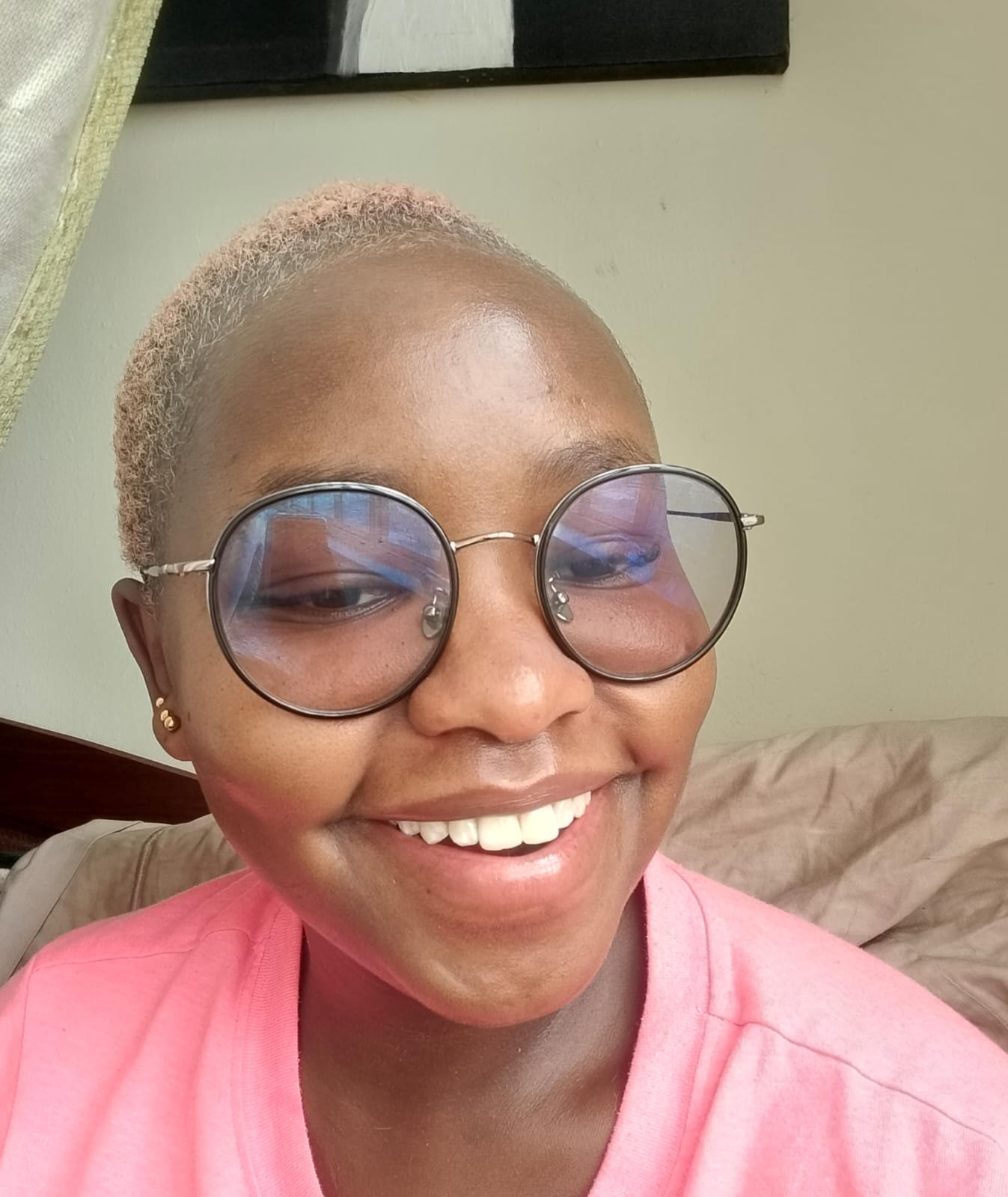As a member of Kenya’s LGBT+ community – a country where the law states that “expressions of homosexuality” carry a maximum prison sentence of 14 years – Ruele Okeyo suffered plenty. Rejected by his family when he first came out, he found himself homeless in Nairobi between 2018 and 2020. Then in September 2020, when he was 23, he received a further knock after testing positive for HIV.
“Being homeless and unemployed, I was already hanging by a thread,” he says. “Then when I had to deal with HIV… that was a really tough period.” Ruele went through all the different stages of grief – including anger, denial, and depression – before getting mixed up in serious drug use. “I remember just breaking down in the middle of the streets, I think two or three times, just overwhelmed by it all,” he says.
He emerged from his lowest point through the help of friends, his dad, who he now describes as his “biggest fan,” and online activism. With more than 90,000 followers on TikTok and 40,000 on Facebook, Ruele is well-known for filming himself taking HIV antiretroviral medication in public spaces such as churches and supermarkets, empower others in his community while destigmatising the virus. It has not been an easy road, but to meet Ruele today is to find a confident and bubbly 28-year-old.
“I used to have dreadlocks, and I remember shaving them and thinking, like Samson, that I might be hopeless and weak now, but as they grow back, my strength will also return,” he says. “I think it was through that metaphor that I was really able to push through.”
But Ruele was thrown another curveball earlier this year when Donald Trump’s aid cuts obliterated the United States Agency for International Development (USAID). The resulting cuts to the US President’s Emergency Plan for AIDS Relief (PEPFAR) and the Global Fund – both major funders of HIV healthcare in Kenya – left the Kenyan government scrambling to step in and fill gaps.
Six months into Trump’s cuts, the number of people saying they are critically short of medicine have so far been mercifully few. However Ruele, says he has seen a significant increase in the spreading of misinformation and hate online.

“This year we have seen this huge rise in technological-facilitated stigma. My comments section has been filled with people spreading hate, or saying there is no more medication and therefore they should avoid me,” Ruele, who is supported in his advocacy work by a Unicef-backed programme called 2gether 4 SRHR, says. “The government says there is medication, but people just don’t believe it, which takes the whole task of addressing stigma a couple of steps back.”
Ivy Chebet, a community organiser whose parents both died from HIV-related causes when she was young, agrees that the online hate directed towards HIV positive people has been hard to stomach this year. “One comment that really stuck with me was someone saying: ‘At least now everyone who lives with HIV will die because there will be no medication and we can all start afresh,’” she says.
Ivy believes that the impacts on efforts to address stigma are continuing more than six months after some PEPFAR programmes restarted in the country. The key public message of “U=U” – or that someone who is on medication and therefore whose “undetectable” status makes the disease “untransmittable” – has been severely undermined. “Unfortunately, it takes a lot to change people’s perceptions positively, but it takes very little to turn them back,” she says.
Ruele agrees. “People living with HIV continue to be scared to reveal their health status, because there is a new fear that if you say you have HIV, then people will accuse you of not taking your medication,” he says.

‘Help is being lost’
‘While the Kenyan government has largely filled in the gap left by USAID for core medication services, funding for public health awareness programmes have taken a severe hit. This has made it even harder to take back control of the narrative. “We have been struggling to activate campaigns against stigma, which means that people still do not have access to the right information,” says Ivy.
These impacts have been witnessed first-hand by Jerop Limo, 27, who also lives in Nairobi. Jerop was born with HIV, and her mum died of the illness when she was small. She now works as the CEO of an HIV youth advocacy organisation – and this year has seen an alarming decline in community health services.
“In Kenya, we have community health promoters, who are trained and given information, and who go around and support the community,” she says. “A lot of these people lost their jobs – as did many peer educators who support young people and adolescents with HIV.”
Smaller clinics that focused on HIV in marginalised groups like sex workers or the LGBT+ community, many of which were run completely independently by foreign organisations, have also been shut down, forcing people to attend conventional health service providers, introducing them to stigma that they might not have experienced before.
“Suddenly patients are dealing with a clinician who might not be interested or might not be comfortable with offering HIV services,” Jerop says. “Often they are not fully informed about HIV, because it can be very complex.”
A survey of young Kenyan people living with HIV, carried out earlier this year found that cases of anxiety, depression, and suicidal ideation are rising, with many people also reporting a complete halt to psychological support services.

A shift in public attitudes also leads to those living with HIV to doubt themselves. “Self-stigma is often the most damaging form of stigma, and that comes from a feeling of dejection and low self esteem,” explains Ivy. Such feelings lead to people self-sabotaging in their day-to-day lives, or going on a “drug holiday”, which is when people decide to stop taking their medication for a period, which can rapidly lead to a dangerous form of HIV developing.
“If you are misled by misinformation you see online, or the community group you used to attend is now no longer meeting, then people can fall into a trap of thinking: Well if I am going to die anyway, I may as well stop taking my meds,” says Ivy.
“It can take so much effort to actually open that bottle and take the pill, every single day for the rest of your lives,” adds Jerop.
The situation is compounded yet further for marginalised groups, who often have zero legal protection, and powerful forces are working in opposition to them. Even where HIV services remain to help, Ruele says, The Church and the anti-rights movement are pushing to shut them down. He focuses, therefore, on his online activism, with the hope that he can help those who might be feeling lost.
“I delete any negative comments that appear on my content, and try to make my pages as positive as possible,” he says. “These kinds of safe spaces are important, because it really is the Hunger Games out there.”
This article was produced as part of The Independent’sRethinking Global Aid project
